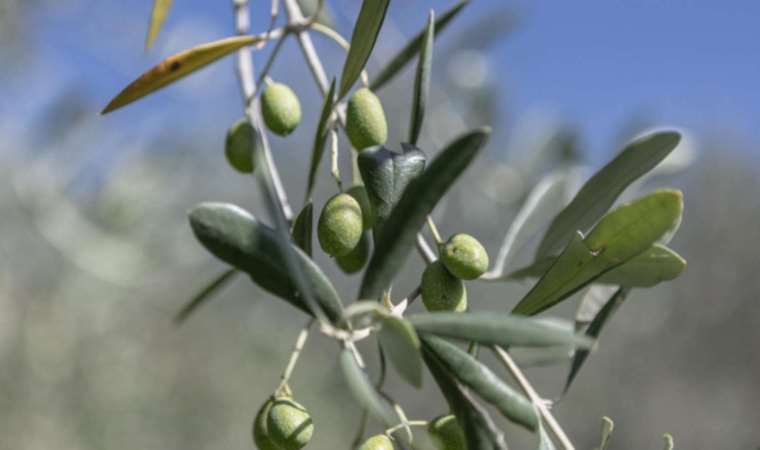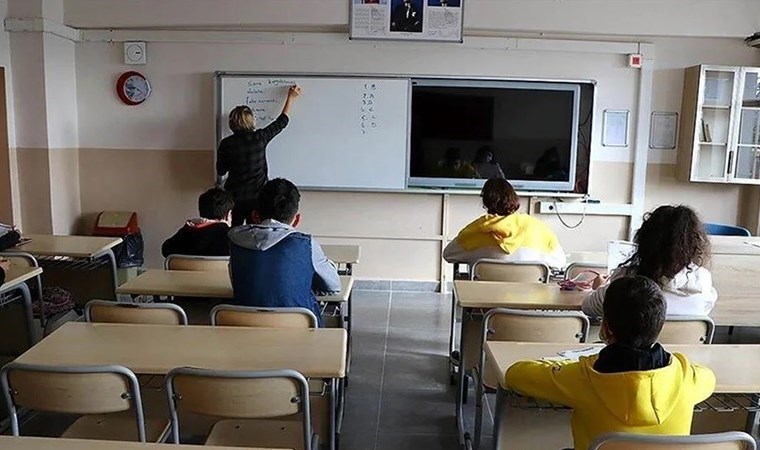Olive oil industry feels burn of Europe’s searing summer
EU industry fears troubles will linger as droughts, heat waves, other extreme weather events take a hefty toll on harvests

European olive oil producers are sounding the alarm as this summer’s heat waves are expected to cause the second bad harvest in a row.
Unusual droughts are the heart of a brewing crisis for the sector, which may result in gaps in shelves and rising prices of olive oil, industry figures warn.
“We are very worried,” said Andrea Carrassi, director general of the Italian Association of Olive Oil Producers (Assitol).
“Indeed, the numbers are clear.”
Olive oil production in Europe is estimated to drop by 40% in the 2022-23 season compared with the previous one, according to data published in July by the European Commission.
Spain, which accounts for roughly half of the world’s total output of olive oil and is the largest producer globally, recorded a 56% slump.
Greece’s output dropped by 47%, Portugal’s by 39%, and Italy recorded a 27% drop.
Outside Europe, Tunisia’s production is down by a quarter, while the global decline is around 26%.
Turkey has been the only bright spot with an increase of 17%.
Carrassi said problems caused by droughts have been compounded by the rise of energy and raw material costs spurred by the Ukraine war.
For instance, he said paper and glass needed for the packaging of olive oil had “crazy prices” throughout most of last year.
These factors, he added, will also likely have a negative impact for the next season.
“The mix of the impact of the war and that of climate change makes us foresee another very complex campaign,” Carrassi told Anadolu.
‘Scenarios unseen before’
Droughts and heat waves continue to afflict the Mediterranean, the region that accounts for most of Europe’s olive production.
According to the Italian farmers’ group Coldiretti, not only did Italy experience record heat in July, it also suffered 43 extreme weather events across the country, double of what was seen in the same period of last year.
In Spain, almost 9 million people in many areas currently have their water supply restricted due to extreme drought, including in the southern Andalusia region, a major producer of olives.
Recently, Greece also experienced its hottest July weekend in 50 years.
Europe’s stock of olive oil at the end of the 2022-23 season dropped by almost 60% to 280,000 tons, compared with the previous period, according to European Commission data.
Antonio Raguso, a fourth-generation olive farmer and oil producer from the southern Italian region of Puglia, has seen a 30% decline in production and worries there will be a similar drop next season.
“I fear this is going to be a trend and that we will experience scenarios unseen before,” he said.
In particular, the general drop in production, especially in Spain, where other countries including Italy buy olives or olive oil to bolster their own production, is making matters even worse, said Raguso.
Despite expectations driven by a good harvest in Turkey and the attractiveness of the EU market, EU imports are not expanding at a much faster rate compared to the last marketing year, the European Commission’s July report said.
As a result, the combination of all these factors is rapidly pushing up olive oil prices. The reduced availability keeps producer prices high and further fuels their upward trends, the commission said.
The producer price for extra virgin olive oil, the most refined quality, rose by 75% to €5.92 ($6.50) per kilogram during the week ending May 21, compared to the same period of last year, according to the International Olive Council, an intergovernmental group of countries that produce olives or products derived from olives.
The price of Italian extra virgin olive oil was up 46% to €6.33 for a kilogram, while the spike was 70% to €5.6 per kilogram for Greece.
In such conditions, producers fear there will be lower consumption of olive oil over the following year, with consumers switching to other products, such as sunflower seeds oil.
In addition, European exports of olive oil to the US declined by 20% during the last season, while those to China fell 31%, Canada 18%, and to the UK by 17%, according to the European Commission report.
“This paints a general negative picture and there won’t be a magical remedy in the upcoming season,” said Carrassi.
“The drought, unfortunately, isn’t over and the wave of price increases hasn’t ended.”

En Çok Okunan Haberler
-
 Mükemmel koca olan 4 burç
Mükemmel koca olan 4 burç
-
 Kadınları 'çarşaf'a çağırdılar
Kadınları 'çarşaf'a çağırdılar
-
 Metin Külünk'ten, Şimşek'e 'fotoğraflı' uyarı
Metin Külünk'ten, Şimşek'e 'fotoğraflı' uyarı
-
 Taksim bombacısı için karar çıktı
Taksim bombacısı için karar çıktı
-
 Nihal Candan için yeni karar
Nihal Candan için yeni karar
-
 Erdoğan'ın ABD ziyareti ertelendi!
Erdoğan'ın ABD ziyareti ertelendi!
-
 Savunma sanayi firmalarının ürünleri, Din dersinde!
Savunma sanayi firmalarının ürünleri, Din dersinde!
-
 Hazine ve Maliye Bakanlığı’ndan KDV zammı
Hazine ve Maliye Bakanlığı’ndan KDV zammı
-
 İşte 'yeni müfredat' taslağı...
İşte 'yeni müfredat' taslağı...
-
 Arda Güler ilk 11 çıktı ve golünü attı!
Arda Güler ilk 11 çıktı ve golünü attı!
















